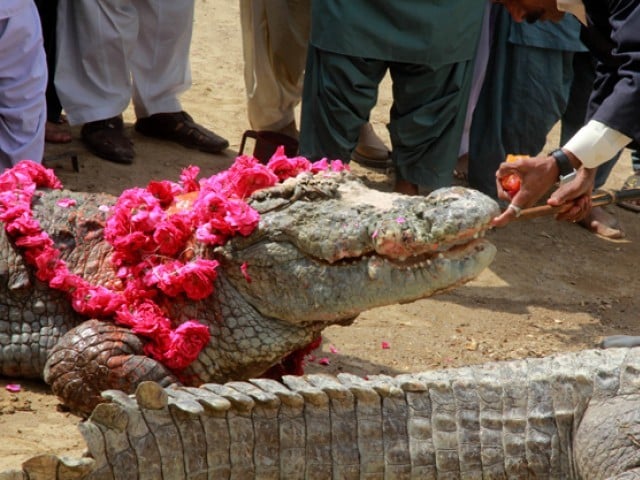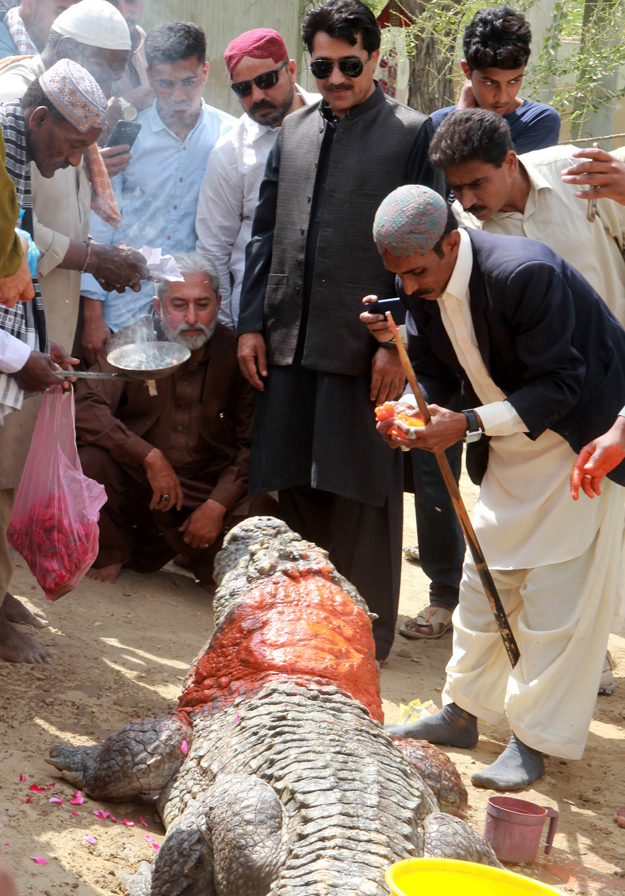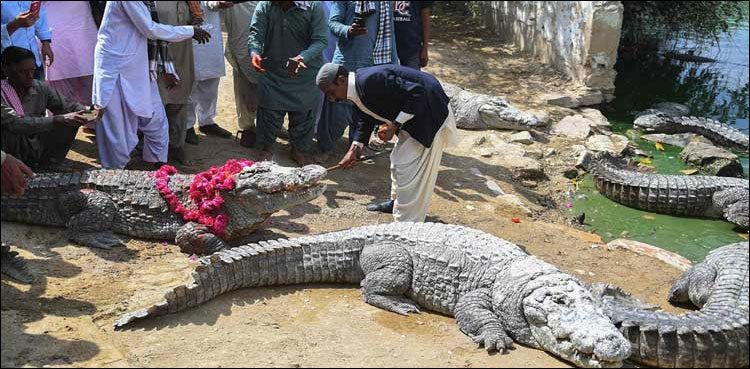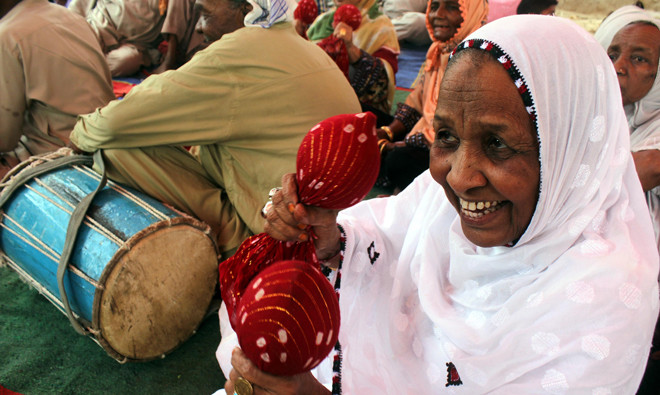Members of the Sheedi community – a community of Pakistanis of African descent – are believed to have arrived from South Asia during Arab rule as slaves, soldiers, or as seafarers.
Today, they are spread out in Karachi’s downtown Lyari, and other areas such as Badin, Hyderabad, Badin, Matli, Tando Muhamad Khan, Tando Allahyar and other towns and cities of Sindh.
Until mid-2011, members of the Sheedi community gathered at Manghopir, a suburban area in Karachi every year for their annual spiritual festival known as Sheedi Mela.

Photo: ATHAR KHAN
Celebrated in June or July, the centuries-old traditional festival concludes at a shrine at Manghopir where community members offer special sweets and meat to a sacred crocodile.
Otherwise known as the Crocodile Festival, the Sheedi Mela remains the most important event in the community’s calendar as members recall their African roots amid traditional rituals.

Photo: Anwar Abbas
But the festival had to go on a break for seven years due to security threats by Taliban militants, especially in the area where the shrine is located.
In 2017, the four-day festival resumed but was only held for a day, and did not attract a large number of devotees and residents as expected.

Photo: ATHAR KHAN
In 2018, however, it was much better as Sheedi Mela was held for three days. This year’s event was no different as scores of families and residents from far and near made it to Manghopir in June to celebrate the festival in grand style.
“This year, the sounds of drums echoed in the streets of Manghopir on Wednesday morning as Sheedi men, women and children performed their traditional dhamal over tunes on their sacred drums,” Samaa TV reported at the time.

Photo: Samaa TV
‘Dhamal’ is a dancing procession where men and women can even go into trance states as they dance to the rhythm of the drums.
The procession usually starts from the city of Sheedi Goth, which is located near the shrine.
Here, the faces of seven girls are covered with chunri dupattas, while carrying trays full of sweets on their heads during the march.

Photo: Samaa TV
What has been the most interesting part of Sheedi Mela is the feeding of the crocodiles living in the pond on the premises of the shrine of Hazrat Khwaja Hassan.
During this year’s event, offerings of fresh meat and garlands of flowers were given to Mor Sahab, who is described as the oldest crocodile believed to be more than 100 years old. This mandatory ritual is known as Tiko.
“When the crocodile ate the meat and raised its neck above the ground, the devotees perceived that their offering had been accepted,” according to Samaa TV.

Photo: ARY News
By honoring the crocodile, locals believe that their whole year “will pass in peace, tranquility and prosperity.”
“All the wealth we have today is a blessing of Mor Sahab,” said Saira Sheedi, a member of the Sheedi community. “The government needs to help us expand the pond, as the area where more than 150 crocodiles are living is not sufficient enough to house all of them,” she remarked.

Photo: Arab News PK
Sheedi Mela, which some Sheedis believe is more important than Eid, has also been a unifying force among residents.
“During the festival, community members discuss their issues, even marriage proposals, and resolve family disputes,” community leaders once said.
https://youtu.be/YByNHdqzUX0










